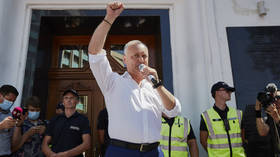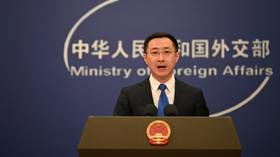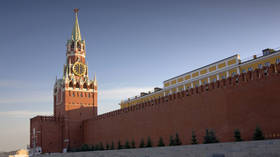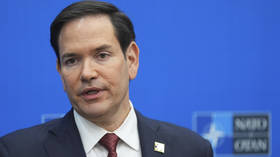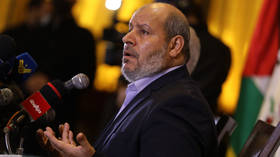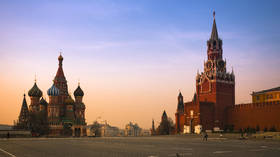UN panel decision on Assange – ‘sharp rebuke to British & Swedish govts’
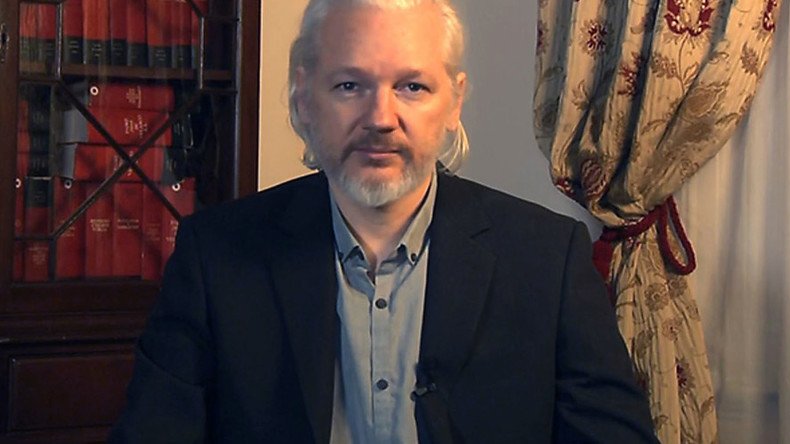
What will be the consequences of the UN panel decision on Julian Assange? Do the UK and Sweden violate the principles of human rights by rejecting it? Will any world powers now step in to defend the WikiLeaks founder? RT asked experts.
A United Nations human rights panel said Friday that WikiLeaks founder Julian Assange has been “arbitrarily detained by Sweden and the UK since his arrest in London on December 7, 2010, as a result of the legal action against him by both governments.”
READ MORE: UN panel rules Julian Assange arbitrarily detained, entitled to liberty & compensation
The panel said he should be freed immediately and compensated for the years he has lost.
Christophe Peschoux, a senior member of the UN Working Group on Arbitrary Detention said the decision is legally binding because of its basis in international human rights law.
Both the UK and Swedish governments rejected the UN ruling on Assange. RT asked human rights activist Peter Tatchell if this contradicts human rights principles.
This opinion announced by the UN working group “is of indication of Julian Assange and a very sharp rebuke to both the British and the Swedish governments,” says Peter Tatchell.
“Those governments often criticize other nations for human rights abuses, but here they are being accused of violating Mr. Assange’s human rights. Moreover, they are flouting what the UN has said when Sweden or Britain or any other country must abide by UN rules and declarations. So, it’s damaging to Swedish and British credibility,” he told RT.
‘Extraordinary messy and sinister story’
John Pilger, Australian journalist and panel member in Geneva.
The British government would say to the regime in Myanmar that the UN working group tribunal finding against the junta that they had unlawfully detained Aung San Suu Kyi was binding. In fact, the British government has agreed with every judgment that the tribunal has made - Morsi in Egypt, Anwar Ibrahim in Malaysia and others.
READ MORE: Freeing Julian Assange: The last chapter – John Pilger
The only problem with this one for them is that it’s an Australian political refugee right at the heart of London next to Harrods and the finger has been pointed at the British government, the Swedish government and of course back in the shadows - the US government. What must be remembered about this, in the time that I’ve been involved with this campaign and following it since 2009-2010 - it is an extraordinary messy and sinister story. There are many facts that are absolutely important to know if you are going to understand anything about it. Most of these alien facts have been brought together for this tribunal and have been examined by clearly distinguished jurors who don’t sit all that often, they’ve looked at all the facts and they said: “Rule of law should apply here: Britain and Sweden are unlawfully detaining Julian Assange.” Britain has lost this. The British government has lost this. The Foreign Office is spinning like the Olympic cycle at the moment - it doesn’t know where to go.
RT asked Wendy Addison, former whistleblower on corporate fraud, whether Friday’s announcement would have wider implications for whistleblowers in general.
“I think we’ve got to look at the human rights of the whistleblowers, and whistleblowers being the individuals that speak out in the public interest. We’ve got to remember that the intention of a whistleblower is to bring to the attention of the public some illegitimate or illegal misconduct. And we know from experience that the push back and the backlash that we receive is really tend to amount to human rights abuse in terms of having to live an isolation or having to give up our careers and life on the streets,” she said.
‘US treats UK & Sweden as vassal states’
Vice-chair of the UN Working Group, Setondji Adjovi told RT that the British judicial system is under “immense pressure” from the US.
“I am not any foreigner to arbitrary detention. My [fore] fathers came from Ireland; they were quite familiar with the vaunted British judicial system. They were arbitrarily detained right and left. I can speak out of some experience here that the British will do our bidding and so the real key here is the US. And the US treats the British and the Swedish now as vassal states. And the pressure that they put on the British, including their judicial system (witness what happened before the attack on Iraq) is immense. The question really is whether the British judicial system and the British government will be embarrassed enough, will be shamed into taking this situation seriously. It is building pressure on both countries, in Britain, and in Sweden. The journalists are finally starting to get it after five years of arbitrary detention. People in the world will look at this and say: “Well, just as before the attack on Iraq.” When the British Attorney General said: “No, that would be illegal. You need a UN Security Council resolution.” Tony Blair and the British establishment said: “No, the Americans must do this and so we will do it.” We know the result of that: chaos in the Middle East. In this case this chaos in the judicial systems as the British and the Swedish do not see it possible to go against what the US wishes: to put Assange in jail for most of the rest of his life. And an indictment is already prepared by a secret grand jury. And he is quite right to avoid this, and he is quite right to insist now in the wake of this working group ruling that he be given back his passport and let go. We’ll have to see what happens.”
The statements, views and opinions expressed in this column are solely those of the author and do not necessarily represent those of RT.



